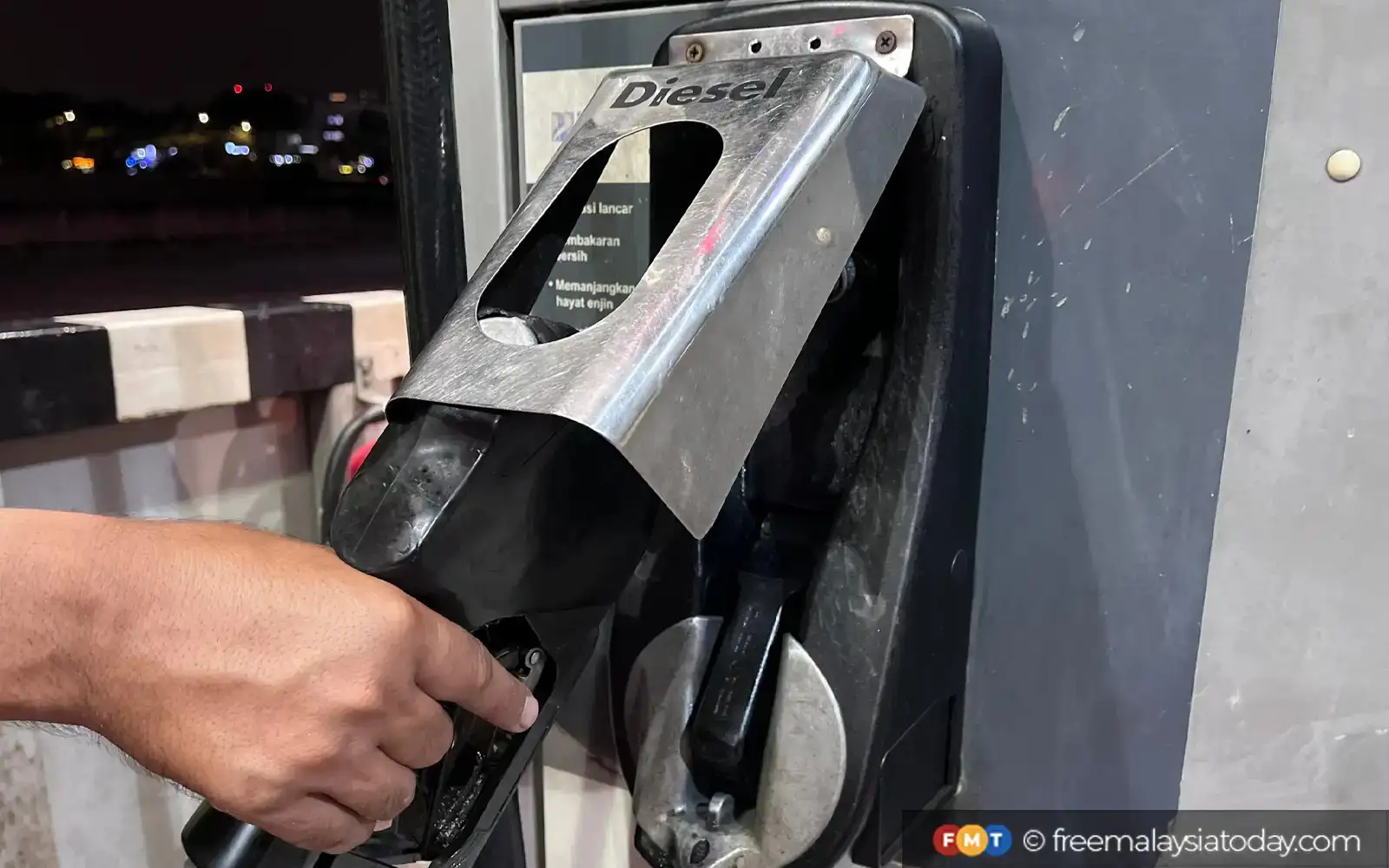
PETALING JAYA: The decision by the government to remove the diesel subsidy for private vehicles but maintain it for commercial use has generally gone down well but concerns remain among experts and stakeholders.
Economist Yeah Kim Leng agrees that the move is strategic and may even pave the way for the adoption of electric vehicles (EV) but consumerism activist Saravanan Thambirajah warns that businesses may still find loopholes to raise prices.
For Amiratul Husna, an analyst at BIMB Securities Research, it will also help to improve the management of resources.
The move is expected to bring substantial savings for the nation. For instance, the government spent RM39 million a day just on diesel subsidy in 2023. That worked out to RM1.2 billion a month or RM14 billion for the year.
The plan is to divert the savings from the diesel subsidy rationalisation to meet other needs such as cash handouts to the most needy to help them defray increases in costs.
Little impact on inflation
Yeah, who is a senior fellow at the Jeffrey Sachs Center on Sustainable Development at Sunway University, said that maintaining the subsidy for commercial vehicles will prevent a sharp increase in the prices of goods and services.
“This will ensure that there is no knock-on effect on inflation,” he told FMT.
However, he said, if all subsidies are to be removed eventually, it will have to be done gradually and managed carefully.
Yeah said the removal of subsidies for fuels will also pave the way for the adoption of EVs to meet the country’s goal of achieving net zero carbon emission by 2050.
Amiratul said making the transition to targeted subsidy will help to direct resources more efficiently, reduce wastage and ensure that support reaches those who need it most.
At the same time, she said, businesses will have the incentive to add more value to their products and service.
“They can invest in technology, innovation and skills development which will ultimately strengthen the entire value chain and enhance competitiveness,” she told FMT.
Price increases still a concern
However Saravanan, who is CEO at the Federation of Malaysian Consumers Associations (Fomca), cautions that the move may still lead to indirect price increases.
“For instance, employees (who drive diesel-driven vehicles) may demand higher wages to compensate for the rise in fuel costs,” he told FMT.
“This will lead to higher operational costs for businesses,” he added.
The government has given an assurance that enforcement, which is key to ensuring that businesses do not raise prices indiscriminately, will be a priority.
Nonetheless, Saravanan fears that maintaining the subsidy for businesses will not stop them from subtly passing indirect costs to consumers.
He urged the government to ensure transparency in reports on how the cost of diesel affects pricing.
“The removal of subsidies should also be done in stages to ease consumers into the new price regime,” he added.
Economist Barjoyai Bardai pointed out that the impact of the subsidy rationalisation for diesel will be minimal for private vehicle owners given the low amount of fuel they consume individually.
On the other hand, he told FMT, businesses may still find an excuse to raise prices, particularly for essential goods and services.
Barjoyai said the bigger challenge is to single out those who should continue to enjoy the subsidy.
“For instance, deciding which of the small traders in the local markets are still entitled to the subsidy will be an uphill climb,” he said.
He said that to ensure fair distribution of the subsidy, there must be direct cash transfers to all households, especially those in the low-income group.
“This will curb abuse and reduce smuggling given that the allocation for such cash handouts will be significantly lower than that for fuel subsidies,” Barjoyai added. - FMT



No comments:
Post a Comment
Note: Only a member of this blog may post a comment.